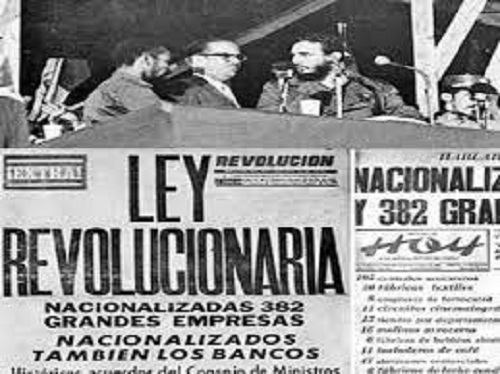
Havana, Mar 26th. - The 65 years of the nationalization of Banks are celebrated today in Cuba based on efforts to boost production and curb inflation.
A report published Wednesday in the newspaper Granma addresses this issue of vital importance to the island based on the work of the Central Bank of Cuba.
The article points out that the year of Anniversary 65 of the nationalization of the Banking must be a political reason to promote the objectives proposed in this 2025 by the Central Bank of Cuba (BCC), with the commitment, in addition, to achieve greater agility in the leading role that it plays.
It indicates the means highlighted by the First Secretary of the Central Committee of the Party and President of the Republic, Miguel Díaz-Canel Bermúdez, in the annual balance sheet of the organization.
He indicated an update on monetary policies based on the three pillars of the Government, as well as seeking action to stop inflation and stimulate national production from banking and financial activity.
The president described the macroeconomic stabilization project as a major task, highlighted the process of bankrupt operations, urged to seek mechanisms to manage more foreign exchange income, improve control of allocations, and work quickly on financing control.
For her part, the minister president of the BCC, Juana Lilia Delgado Portal, said that 2024 was characterized by the increase of the economic, financial and commercial blockade of the United States, and the inclusion on the list of supposed countries sponsoring terrorism, a situation that limits the availability of the financial resources available to the country's banks.
She added that strong macroeconomic imbalances remain, the increase in money in circulation persists and, consequently, the intensification of the inflationary process, as well as the increase in the depreciation of the Cuban peso against the currency in the informal market.
The president explained that the low use of the tax bank account, the low acceptance of electronic payment by suppliers of goods and services, the non-compliance of the cash deposit in a stable manner, the misuse of personal bank accounts for the business activity, and insufficient control of economic actors, concludes Granma. (Text and photo: PL)